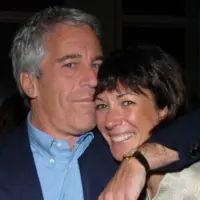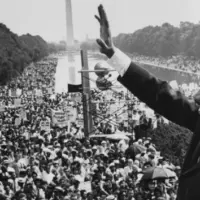
Miami elections could proceed this year as originally planned, after a judge ruled that city officials could not push elections back to 2026 without voter approval.
The ruling comes after the Miami city council voted 3-2, and Miami Mayor Francis Suarez signed off, to cancel November’s elections and hold them in 2026 instead. They argued the alignment with statewide elections would lower costs and increase turnout. The decision was met with pushback for being done via ordinance rather than a vote from the public.
Suarez and council members faced accusations, including from Florida Gov. Ron DeSantis and Florida Attorney General James Uthmeier, of deciding to extend their own time in office, some beyond legal term limits.
Mayoral candidate Emilio Gonzalez filed a lawsuit on June 30, challenging the decision, calling it “unconstitutional” and a “blatant power grab.”
Miami-Dade County Circuit Judge Valerie R. Manno Schurr ruled in favor of Gonzalez on Monday, saying the city did not have the authority to shift elections without voter approval.
“The Court declares that the City of Miami cannot change the dates of municipal elections or the terms of offices for the City’s elected officials without amending the City of Miami Municipal Charter … which requires approval by the electorate,” Schurr wrote in her opinion.
DeSantis lauded Monday’s decision. He previously called the attempt to postpone the elections “wrong” and said he hoped to see “a swift legal response.”
“City of Miami politicians voted to defy term limits, cancel this year’s scheduled election, and extend their own terms in office — all without voter approval. Today, a judge has put the kibosh on the scheme,” DeSantis wrote on X. “Great to see the law and common sense prevail.”
Florida Attorney General James Uthmeier, who had issued a legal opinion on June 11 supporting Gonzalez’s argument, also weighed in on social media.
“Thrilled that the Court agreed with our legal opinion on the City of Miami’s unconstitutional attempt at moving back an election without voter approval,” Uthmeier wrote.
Another amicus brief supporting Gonzalez’s came come from former Miami mayor and current Commissioner Joseph Carollo. Carollo was one of the two commissioners who voted against shifting the elections.
The court’s ruling offers declaratory relief but not injunctive relief, meaning Miami is legally in the wrong but has not been explicitly ordered not to postpone its elections. However, Florida State University Law Professor Michael Morley said “if push comes to shove, the court can just enter injunctive relief” at any time.
The city is appealing Schurr’s decision.
“While we respectfully disagree with the trial court’s decision, we are confident in the strength of our case and remain optimistic about the outcome on appeal,” City Attorney George Wysong wrote in the appeal notice.
Morley said he thought the appeal was “extremely unlikely” to succeed.
Speaking prior to the ruling, University of Miami Law Professor Charlton Copeland said due to the nature of the dispute, the suit would be able to move through the courts “fairly quickly.”
“These are clean legal arguments about what law governs… these aren’t procedurally complicated issues,” Copeland said.
Aubrey Jewett, a professor at the University of Central Florida, said the choice to hold elections on even or odd years involves a “trade off.”
Odd-year elections might have lower turnout, but “a greater emphasis on local issues that people are actually looking at and voting on.” In even years, local concerns might be drowned out by state or federal issues despite a higher turnout, Jewett told ABC News.
Even as elections could go forward this year as planned, Jewett said harm has been done to Miami’s political culture already because the postponement decision was pushed without voter input.
“The local politics has long had a reputation for being sort of an insider’s game, and that a relatively few number of people have a lot of influence,” Jewett said. “I think that for a lot of Miami residents, it will breed even more cynicism and distrust.”
Copyright © 2025, ABC Audio. All rights reserved.














